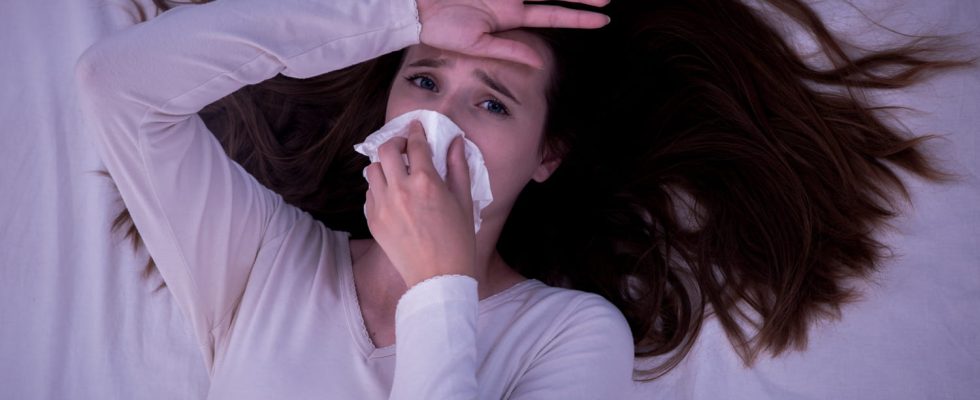We all notice it, as soon as we go to bed, the cold symptoms start again. The reason is physiological.
Runny nose, sore throat, cough… If cold symptoms disrupt the day, they tend to intensify at night when you go to bed. And it’s not an impression. There are physiological reasons which explain this phenomenon.
► The position : When you stand or sit during the day, the gravity causes mucus to flow naturally downward from the sinuses towards the outlet of the nose. When you are lying down, this natural drainage is limited, leading to increased nasal congestion and coughing due to mucus buildup in the throat which has an irritating effect.
► The sleep-wake cycle influences the immune system. “In addition to regulating sleep, the body’s circadian clocks help manage the immune system, which is activated at night to fight bacteria and viruses. When a cold strikes, immune cells step in to attack these viruses. But in doing so, they create an inflammatory response, which can make symptoms worse colds and end up making you feel worse at night” explains Dr. Kay Roy, respiratory doctor interviewed at Telegraph.
► Hormones : “THE cortisolthe main stress hormone of the body, tends to increase during the daywhich helps regulate the immune system and reduce inflammation” adds Dr. Roy. This hormone is at its lowest level during the night what can also intensify inflammation of the body.
Finally, during the day, your mind is distracted by activities. We almost “forget” our symptoms. Conversely, when going to bed, our attention focuses more on the physical discomforts we feel, amplifying their feelings. To relieve cold symptoms at night, you can sleep in a semi-sitting position for example by putting a cushion under your pillow and diffusing a few drops ofessential oils in a bowl of hot water placed on the ground (ravintsara Or eucalyptus are particularly recommended against colds). Get enough rest and eat a balanced diet rich in vitamin C is finally essential to maintain the functioning of the immune system.
